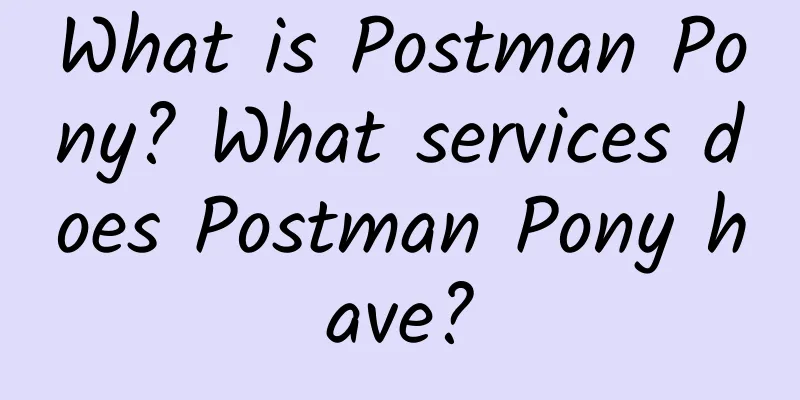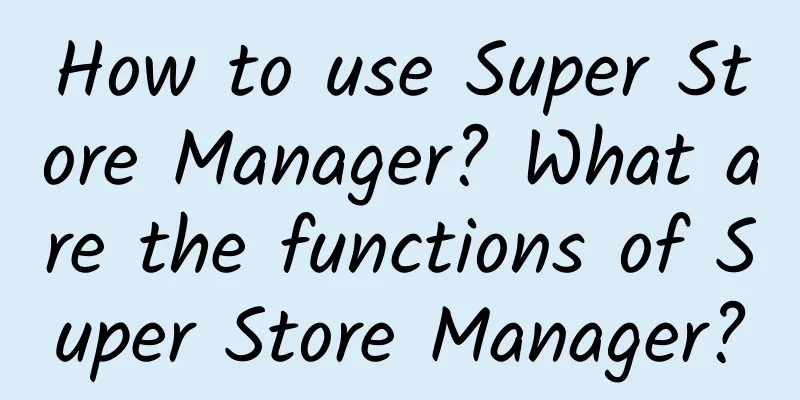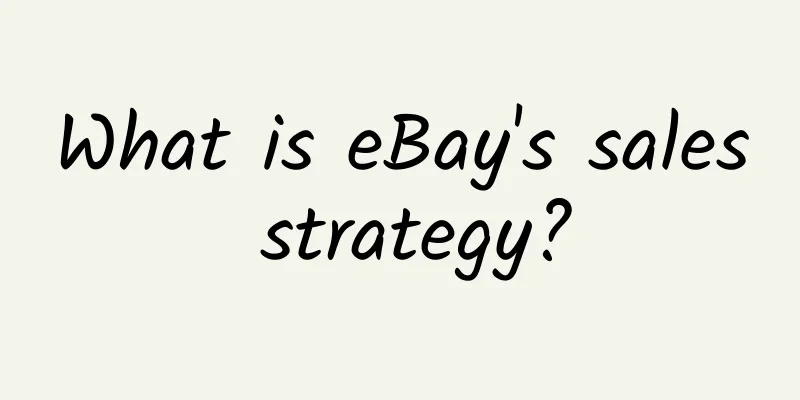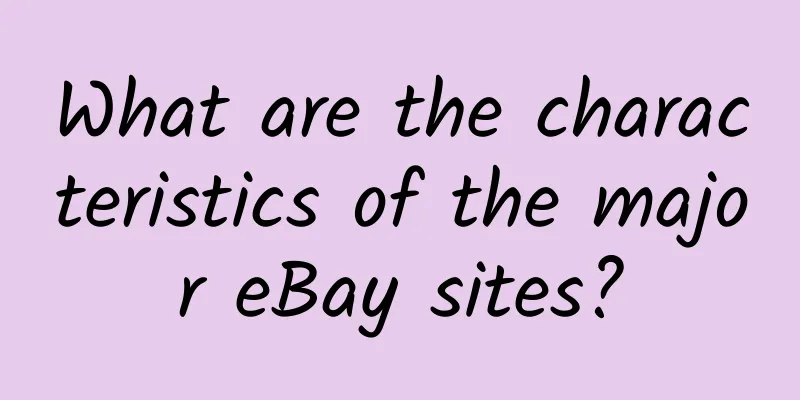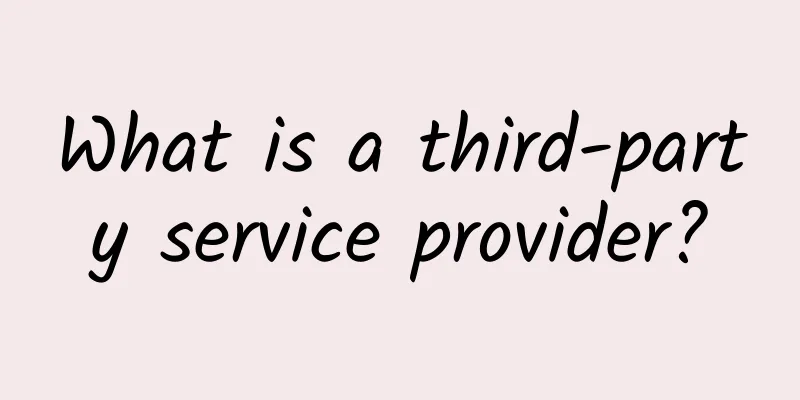What is vertical e-commerce? Which industry is most suitable for vertical e-commerce?
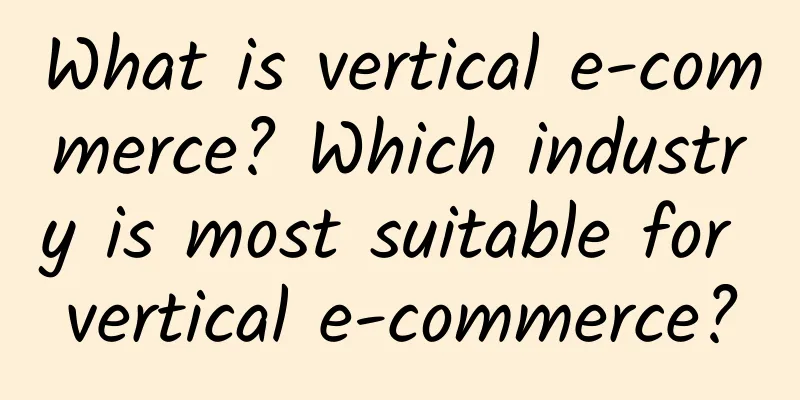
|
Vertical e-commerce is one of the operating modes of e-commerce. In fact, it has been developed relatively maturely in foreign countries such as the United States in the early days, and is still widely used in cross-border e-commerce circles, and most of them are B2B or B2C businesses for the same or related brands. So how to judge whether an e-commerce is vertical? An important point is whether the target customer group is consistent, such as men, the elderly, etc. Advantages of vertical e-commerce: The so-called verticality actually means focusing on one category and doing it well. Its clear direction greatly reduces the cost of acquiring customers. Vertical e-commerce integrates product management, services and channels, providing convenient and diversified choices for suppliers, retailers, buyers and even consumers, which greatly improves customer conversion rates and repurchase rates. Some people may be curious, with so many advantages, which industry is suitable for vertical e-commerce? The most important thing for vertical e-commerce is to maximize the platform value of users and to have high user stickiness. Some people think that clothes, shoes and hats are suitable, some think that digital products are suitable, and some think that industrial raw materials are more suitable... Then I think there is no clear answer to this. Whether it is suitable or not depends on how you do it: 1. Vertical categories. If this vertical e-commerce method is chosen, first of all, the variety of goods can be enriched to meet the customer's entire life cycle, including considering various pricing and promotional methods, etc., so as to guide customers to consume and achieve high frequency of repurchase. 2. Brand verticalization. This is crucial to the brand's popularity and influence, and needs to be based on a certain loyal customer base. Secondly, it is necessary to understand whether the brand's users have the habit of ordering online and whether the payment environment is convenient (whether large payments are required, shipping costs, etc.). Regarding vertical e-commerce, I still think it has a very promising future. How to expand and do well depends on the means of operation and promotion, the quality of products, and understanding of customer needs. To this end, we must understand what customers like and dislike. Making customers feel a sense of belonging and returning is not only the goal of vertical e-commerce, but also the goal of every cross-border e-commerce seller! This article introduces the basic understanding of vertical e-commerce. Please pay more attention to it in the future. |
>>: What is the process of opening a store on eBay? What do I need to prepare to sell on eBay?
Recommend
The basics of the latest NORDSTROM review
Nordstrom audit basics Starting from November 200...
CE certification evaluation model
CE certification can be said to be the most advan...
What is the 360chain overseas warehousing system? What are the characteristics of the 360chain overseas warehousing system?
What is 360chain overseas warehousing system? 360...
What is Webpower? What are the platform advantages of Webpower?
What is Webpower? Webpower was founded in 1999 an...
K-Meta — Keyword Planning Tool
What is K-Meta? K-Meta is a free keyword planning...
Unraveling the "mystery" of cross-border procurement
At the 2003 Cross-Border Procurement Fair (Shangh...
Promoting the development of social responsibility of China's small and medium-sized enterprises starts with you and me
In the current international context of economic ...
Who will audit the EUROPEAN FLAX certification and how much does it cost?
The EUROPEAN FLAX certification is audited by BV....
Introduction to WCA factory inspection? WCA certification standards?
WCA factory inspection introduction: WCA, full na...
A complete guide to using the photo sharing platform Imgur
What is Imgur? What is the use of Imgur? What are...
Timberland_Timberland quality inspection document list
Timberland_Timberland quality inspection document ...
To help export enterprises survive the cold wave of foreign trade, we offer free factory inspection training courses
The Canton Fair just ended, some were happy and s...
What is Tailwind? Main features of Tailwind
What is Tailwind? Tailwind is a social media trac...
What are some useful tips for Google SEO optimization?
When doing Google SEO, you usually first investig...
Incoterm - International Trade Terms
Incoterms, or International Commercial Terms, is ...
